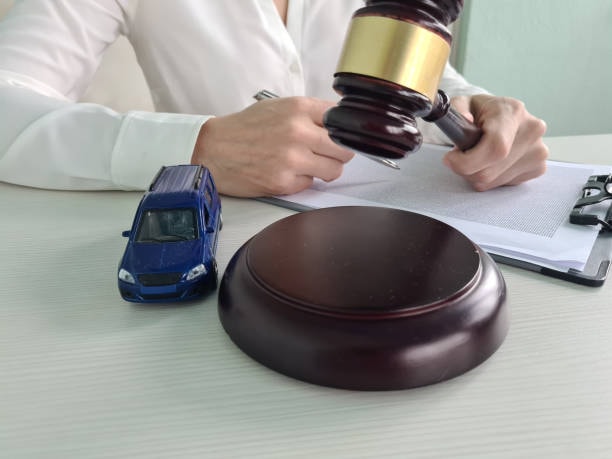In New South Wales (NSW), some traffic offences come with penalty units. A penalty unit is equivalent to a standardized monetary value that is used to calculate fines for traffic law violations.
For offences committed on or after July 1, 2023, one penalty unit value is equivalent to AUD 313. However, the most recent legislation (Crimes and Other Legislation Amendment 2024) provides for an increase in the current penalty unit value to AUD 330, effective from July 1, 2024.
However, if the offence was committed before July 1, 2023, here are the values:
- Between 1 January 2023 and 30 June 2023 = AUD 275
- Between 1 July 2020 and 31 December 2022 = AUD 222
- Between 1 July 2017 and 30 June 2020 = AUD 210
- Between 31 July 2015 and 30 June 2017 = AUD 180
- Between 28 December 2012 and 30 July 2015 = AUD 170
- Before 27 December 2012 = AUD 110
This article will discuss traffic offences in NSW with high penalty units and other penalty provisions.
Traffic Offences with Penalty Units
According to the Crimes (Sentencing Procedure) Act 1999, a judge sentencing a person convicted on indictment may impose an additional fine up to 1,000 penalty units.
In relation to traffic law, the repository of the rules on traffic law violations is the Road Transport Act 2013. Under this Act, the following violations will incur penalty units and/ or imprisonment penalties:
| Traffic Law Offence | Penalty Units |
| Obtaining driver licence by false statements | 20 PU |
| Unlawful possession of driver licence | 20 PU |
| Unlawful alteration or use of licence | 20 PU |
| Driving without appropriate licence | 20 PU |
| Driving or making licence applications while disqualified or licence suspended or cancelled | 30 PU |
| Prohibition on using unregistered registrable vehicles | 20 PU |
| False statements (vehicle registration) | 20-100 PU |
| Failure to comply with the obligations of registered operators | 20 PU |
| Use of dangerously defective motor vehicles | 20 PU |
| False assessments of damaged light or heavy vehicles | 250 – 500 PU (corporations) 50 – 100 PU (other cases) |
| Interference with NSW written-off light or heavy vehicles register | 250 PU |
| Unauthorised disclosure of information | 20 PU |
| Offences involving alcohol or drugs | 20-50 PU |
| Races, attempts on speed records and other speed trials | 30 PU |
| Conduct associated with road and drag racing and other activities | 10 – 30 PU |
| Negligent, furious or reckless driving | 10 – 50 PU |
| Menacing driving | 20 – 30 PU |
| Sale, purchase or use of prohibited speed measuring evasion articles | 20 PU |
| Removal of unauthorised prescribed traffic control devices | 20 PU |
| Unauthorised use of vehicles | 20 PU |
| Offence to contravene prohibition or requirement made by a police officer to prevent intoxicated drivers from driving | 10 PU |
| Offence of interfering with automated vehicle trials | 100 PU |
To know more about the traffic offences under the Act and its penalty units, please check the full text of the legislation here.

Considerations in Imposing Penalty Units
Imposing fines has limitations. Under the Fines Act 1996, there are restrictions that it imposes on the courts when it comes to exercising its discretion to impose a fine.
1. Accused’s means to pay. The court must consider the following:
- The means of the accused as is reasonably and practicably available to the court for consideration, and
- Other matters as, in the opinion of the local or supreme court, are relevant to that fixing of the amount.
2. The totality principle. The courts must also apply the totality principle. According to this principle, the courts must consider the totality of the conduct of the offender and the total sentence imposed when it is intending to impose more than one fine or a fine with an imprisonment sentence.
However, if the accused has benefited financially from the commission of the crime, the court may impose a fine AND an imprisonment term.
3. Seriousness or gravity of the offence. Another consideration in imposing penalty units is the gravity of the offence. In some cases, there’s a maximum fine that the courts must impose. If the courts consider imposing such a fine, they must impose such a value that would reflect the seriousness of the offence which must not exceed the jurisdictional limits.
Procedure in Imposing Penalty Units
Here’s a brief overview of the procedure in imposing fines in NSW:
- Payment details – If the court imposes a fine, you must pay it within 28 days after its imposition. However, the court registrar may allow an extended time to pay you’re your request or application.
- Notification of fine – The court must provide a notification of fine upon the person who has the obligation to pay it. Moreover, it must also include in such document the arrangements for payment and the enforcement of the fine.
- Enforcement order – If you can’t pay by the due date, the court will issue an enforcement order. If there’s an error in the order, the court may withdraw it.
Note that in the payment of fines, the law does not allow the court to require you to pay other financial payments (charity or donation) instead of paying the fine.
Requesting for a Review of Your Fine
If you think the fine imposed on your violation is due to special circumstances, you can request for a review of your fine. However, if the NSW Court issued the fine, contact the court where the fine was issued. If you’re unsure, consult a traffic offence lawyer immediately for assistance.
If it’s not court-issued, you can request a review from Revenue NSW. If you can’t decide whether you should request a review, ask your lawyer to explain to you common fine scenarios, the documents you must submit, and the possible reasons why Revenue NSW may or may not consider it.
If you’re requesting a review from Revenue NSW, the following are the special circumstances that they will consider:
- Your personal situation;
- Any special circumstances;
- Medical emergencies;
- Illnesses, including mental health illness;
- Personal hardship; or
- Trauma.
However, if the offence carries serious matters such as red light, mobile phone, high speed, and school zone offences, they may not give you leniency because it involves high risk to public safety.

Traffic Violations? Get Expert Legal Help Now.
NSW has various traffic legislations that strictly implement penalty units and imprisonment sentences for those who violate the law. Thus, seeking the help of experts in the field, such as traffic lawyers from JB Solicitors can get you through the process of dealing with these violations.
If you are facing penalty charges due to traffic violations, our competent traffic lawyers can help you by:
- Explaining your legal rights and options on the jurisdictional limit of a penalty amount;
- Developing a strong defence, especially if there was contrary intention on the defendant’s side;
- Representing you in court, if necessary or if there is a sentencing procedure; and
- Handling speeding, drug and drink driving, and dangerous driving offences.
Do you want to know more about NSW fines and other traffic law penalties? Schedule a consultation with us today.
